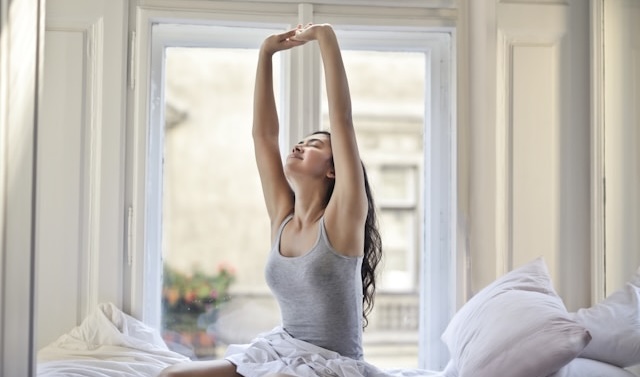
We all know that early birds get the worm. But who wants a worm? Not me. For most of my life I have identified as a night owl, clambering out of bed as late as possible and not so much seizing but reluctantly easing into the day.
US work culture is not really optimal for night owls. Rather, it favours CEOs who get up at 4am and run a marathon while the rest of us hit the snooze button. Still, I always consoled myself with the idea that night owls are actually more intelligent and creative than their early bird counterparts. Franz Kafka and Thomas Wolfe wrote at bedtime; Bob Dylan recorded at night. Even scientific studies indicated it was true.
However, something weird has happened. Due to a combination of existential dread, cutting out alcohol and having a small child who wakes me up at an ungodly hour, I've started to go to bed earlier and earlier. These days, a 9pm bedtime is perfection. The idea of routinely staying up until the wee hours, as I used to, is now horrifying.
This shift has me questioning everything. If I am an early bird, does that make me a lesser being? I went on a mission to settle the owl-versus-lark debate for once and for all.
Is there any evidence night owls are smarter than early birds?
One 2007 study found "that evening-disposition is correlated with the ability to apply divergent thinking strategies to visual content" – a science-y way of saying "more creative". In a 2009 study called "Why night owls are more intelligent", psychologist Satoshi Kanazawa checked the bedtimes of 20,745 adolescents against the results of an intelligence test. He found people with higher intelligence were more likely to be night owls, and posited that it might be because it's "evolutionarily novel" to stay up late.
More recently, researchers at Imperial College London studied UK data on more than 26,000 people who had completed various intelligence tests. The 2024 paper found that those who stay up late had "superior cognitive function" to morning larks.
However, all the experts I spoke to were cautious about making definitive links between chronotype and traits like creativity, intelligence or sociability. While they make for good headlines, all of these studies have important limitations.
That 2009 study, for example? Van Dongen notes the "analysis is based on how late individuals choose to go to bed … [and] cannot rule out the possibility that adolescents with higher IQ choose to study longer into the night and require more sleeping in for recovery on the weekend, or are involved in more or different after-school activities."
So my beliefs about night owls were built on shaky ground. But the stereotypes of creative geniuses burning the midnight oil and early bird CEOs could still be relevant. "The timing of the biological clock determines more than just when people like to go to bed and get up and when they feel most alert during the day," says Van Dongen. "It also determines in part the kinds of activities they may end up participating in and the experiences they get exposed to." If you naturally get up early, it may be easier for you to thrive in a corporate work environment, for example.
The dark side of being a night owl
One thing sleep experts all seem to agree on is that trying to force a routine that is at odds with your biological clock is unhealthy. In fact, it could send you to an early grave.
In 2018, Knutson, of Northwestern, co-authored a study that found night owls have a 10% higher risk of early death and more health problems compared with early risers. The study couldn't determine the underlying reasons, but Knutson notes the issue may have something to do with "circadian disruption caused by desynchrony between their internal clock and the external world". In other words, she says, "it is difficult for a night owl to live in a morning lark's world".
Being a night owl may come with other risks. A 2024 study from Stanford Medicine researchers found that being up late is not good for your mental health, regardless of chronotype. The reasons are unclear, but researchers suspect it's because unhealthy behaviours such as drinking alcohol or eating junk food are more likely late at night.
Similarly, University of Groningen researcher Ana Wenzler worked on a recent study that found staying up late is linked to cognitive decline. Wenzler notes that at least 25% of the effect was because of lifestyle rather than anything intrinsic; again, you're more likely to make poor choices late at night.